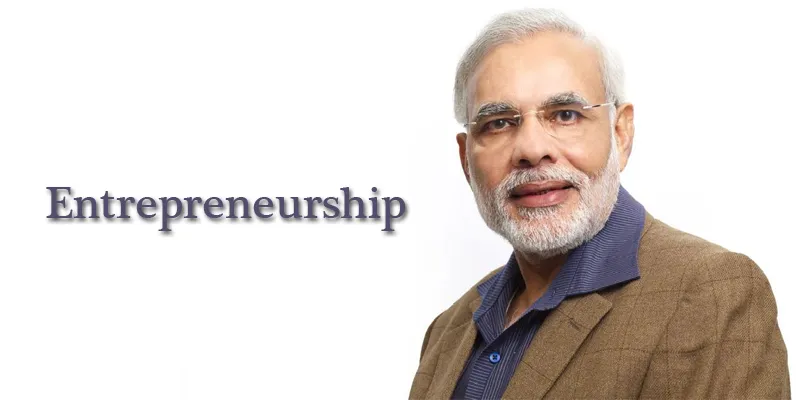4 Things NaMo can do to help entrepreneurship eco-system in India
Narendra Modi or NaMo is perceived to head the new government in India. But is he ready to meet the expectations of the masses especially of entrepreneurs? He may get an opportunity for changing the course of this country.
The entrepreneurs especially young are looking up to him with great hope given that in the last decade no concrete measures have been taken to eliminate unwarranted delays in starting a business or for reducing hassles of reporting with various authorities.

According to ease of doing business index, India ranked 134 in 2014.Why India is not able to climb up the ladder and still lagging behind? Why is it so hard to start a business in India compared to other emerging economies of the world?
New government needs to take actionable steps to encourage entrepreneurship and investment in India. It has to pay high and right attention to improve India’s doing business rankings. In this article, we will discuss what changes new government which is perceived to be headed by Narendra Modi can do to help overall business eco-system of India.
Reduce time taken to start a business by automatic approval & Single window system
The current structure has very difficult compliance requirement for businesses. New Government needs to plan for minimal regulation, compliance and remove paperwork hurdles for starting a business.
The measures should be taken to reduce time taken to start a business in India which is currently more than 35 days. We as a consultant have to convince and explain our clientele especially foreign clients, who comes and ask questions as to why in India the registration process takes 35 days while in other country it is just 24 hours, or 2 or lesser number of days than India. In addressing some of these challenges, the government should start auto approval system or “Straight through Process” procedure by casting more responsibility on the professionals.
An entrepreneur in addition to registration of his business entity also has to go through the process of getting host of other state and central specifics registrations / approval like trade license, environment approval, Service Tax registration, Excise, VAT and a few more. The most difficult part of this is that these registrations are obtained from different departments of the State or Central government.
Instead of going through all this processes, why can’t there be a single window(an online platform or offline) where he gets end to end information about the registration, compliances, taxes, etc. The platform should provide a common place to get clearances for central as well as state level formalities.
Give Time bound Tax Exemption / relaxation to new businesses
In terms of taxation, its time taking and complexity of the system results in a slow rise in new ventures. The New Government should simplify the tax rules; improve tax compliance and lower tax litigations.
IT services giants like Infosys and Wipro benefited immensely with tax holidays on IT exports. Similar tax incentives are much needed for current IT startups as well and for startups in industries like healthcare and manufacturing.
The startups in India can be given tax exemptions on the line of Singapore tax exemption scheme for new startup companies as per which a newly incorporated company that meets certain qualifying conditions can claim for full tax exemption on the first $100,000 of the normal chargeable income for each of its first 3 consecutive assessment years. A further 50% exemption is given on the next $200,000 of the normal chargeable income for each of the first three consecutive assessment years. This will give great boost to our startups that have to start paying taxes right from the first year onwards and on every single penny of profit it makes.
Focus on Skill development and make young population employable
As per a research, India has a youth population of 300 million but it has just 100 million jobs available. However, another research shows that only 3 out of 10 are actually employable based on the skill sets.
Focus should to improve on skill sets by introducing special training course, development & skills programs to develop skilled talents thus helping entrepreneurs who are always hungry for good candidates.
There are more than 5000 Industrial Training Institutes (ITI) in India. However, the quality of training is not up to the mark. They have poor infrastructure, outdated curriculum, less qualified instructors and limited interaction with the industry.
The entrepreneurs who hire them spends considerable amount of time to first train them and then use them.
Infact businesses and Government can work together on this, wherein businesses can train young force on the job and government motivating businesses by providing wage subsidy for a defined period.
Make Access to Funding, bring transparency & remove startup tax
Startups require a financial system which is supportive and which provides the necessary risk capital to aid innovations and enterprises. The government should ensure that funding programs should focus equally on small early stage start-ups also and not only into relatively large and safer investments.
The government should start a dedicated fund, seeded by the Government, and targeted at promoting innovative initiatives.
Today our startups are primarily dependent on private investments coming from India or abroad. The main reason for this is that the Government designated fund is hard to get due to unnecessary bureaucratic bottle necks and lack of transparency. The new Government should allocate funds sufficiently for entrepreneur’s related investment schemes with the aim should be that no startup with a potentially great and innovative idea will suffer for lack of funding.
It is not a secret that Startups are funded based on future prospects of the business idea and not on the current value of the assets of the company.
Government sometime back amended the law to restrict issuance of equity shares at a premium and attached various conditions on it. The law states that that portion of consideration received for the issue of shares of a public unlisted company or private company that is in excess of the fair market value of those shares, will be subject to tax in the hands of the companies under the head “income from other sources”.
With the introduction of this clause the participation of private equity funds or high net worth individuals has been affected and there is a serious impact on genuine start-ups and other Small and Medium Enterprises, as they largely depend upon angel investors or private equity funds for their funding. Such funding is normally at a substantial premium as the underlying assets of the startup do not support a higher fair market value.
New government should give relaxation in this aspect since this provision is creating hindrance in the developing culture of angel investors and private equity funds, funding innovative entrepreneurs, who have the desired skills but have limited resources.
To Conclude:
New government should manifest their role as catalyst to stimulate entrepreneurship. In a developing country like India, downturn of entrepreneurship will be a serious threat to the economy. Narendra Modi supposedly heading the new government should help, as he would be benefited with his past proven work and with vision for holistic economic development for India including start-ups.






